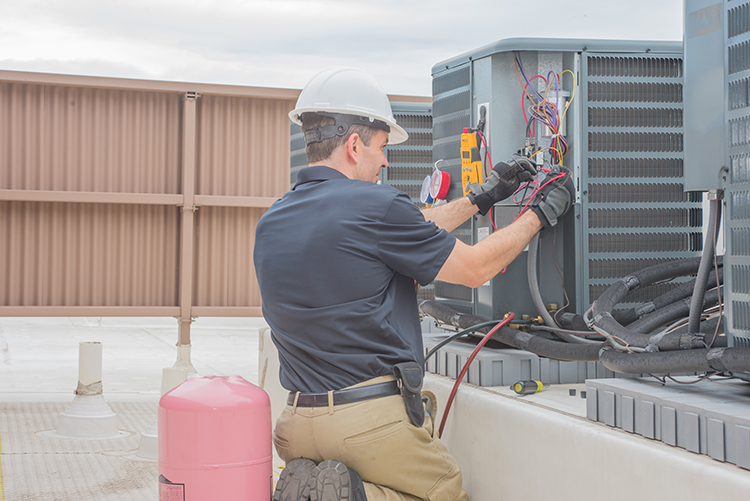Both heating and cooling are getting smarter. That’s good for the planet and good for your wallet. Here’s a quick guide to HVAC zoning technology, what it can do for you, and why you should have it installed.
The basics of HVAC zoning
Traditional HVAC systems measure the temperature of the air in a single location. They work on the assumption that this reading applies throughout the entire area being cooled. Modern HVAC systems with HVAC zoning technology measure the temperature of the air in multiple locations. This means that they allow a much more granular level of control.
The mechanics of HVAC zoning
HVAC zoning is more complicated to install than traditional HVAC systems. Traditional HVAC systems consist of a unit that produces cool air, ductwork to distribute that air, and a single thermostat to manage the distribution. Upgrading this to HVAC with zoning technology requires adding additional thermostats plus motorized dampers.
Each thermostat is in charge of its own HVAC zone. It keeps the temperature in its zone at the correct level by adjusting the dampers to regulate the flow of air. As the dampers open, they allow more cool air to flow into the HVAC zone and hence lower the temperature. As the dampers close, the flow of cool air is reduced, and hence so is the cooling effect.
The cost v benefit of HVAC zoning
In the very smallest spaces, for example, city micro-apartments it can make sense to stick with traditional HVAC. Potentially this will change in the future. For now, however, the extra benefit probably isn’t enough to justify the extra cost of installing an HVAC system with HVAC zoning technology.
Once you get into homes with two or more rooms, however, the situation changes significantly. Once you get into homes or commercial buildings with multiple floors, then, realistically, HVAC zoning becomes clearly the best option by far. Here are the three main reasons why.
Lower power use
These days, the increased cost of installing an HVAC system with zoning can probably be recouped through the savings in electricity. Outside of the very smallest spaces, it’s extremely uncommon for traditional HVAC systems to maintain the desired temperature throughout the space.
What generally ends up happening is that they do a good job of maintaining the temperature in the area near the thermostat. As you go further away from the thermostat, however, the temperature goes up or down noticeably.
If it goes up, people may resort to using extra devices such as fans to bring it down. If it goes down, then you could be looking at a double waste of energy. Firstly, you will definitely be wasting energy on cooling. Secondly, people may end up using plug-in heaters to get the temperature where it needs to be.
Less wear on the HVAC system
Opting for an HVAC system with HVAC zoning also makes life easier for your HVAC unit. This can help to reduce maintenance costs and extend its working lifespan.
Greater comfort
The better your HVAC system works, the more comfortable people will be. This will make them less likely to resort to using other devices to correct the temperature.

